Description
Omnes Gentes Plaudite
for SATB choir with soloist(s)
Duration: ca. 2′
Words: Anonymous C14th, from Sloane MS 2593
Music by Edward Caine
This is one of a number of settings based on the Sloane MS 2593 manuscript – a 14/15th Century manuscript based in The British Library which contains a large number of carols and songs written in Middle English and Latin. For more information on the Sloane 2593 project click here.
The first line of this riddle poem Omnes Gentes Plaudite is the first line of psalm 47 “Omnes gentes plaudite manibus” (Together clap your hands all you nations). There the similarities stop. This is a riddle poem with no obvious solution:
Omnes gentes plaudite.
I saw myny bryddis setyn on a tre;
He tokyn here fleyȝt and flowyn away,
With, Ego dixi, have a good day!
Many qwyte federes haȝt the pye:-
I may noon more syngyn, my lyppis arn so drye.
Manye qwyte federis haȝt the swan:-
The more that I drynke, the lesse good I can.
Ley stykkys on the fer, wyl mot is brenne;
ȝeve us onys drynkyn er we gon henne.
It is often described as a begging song, or a drinking song. References to “The more that I drink, the less good I can” and “save us one drink, ere we go hence” make it a likely wassail, although references to the birds sitting on a tree, and “I may no more sing, my lips are so dry” along with allusions to the magpie (many white feathers has the ‘pie) may place this as a poem about the seven stations of christ on the cross (in which case having one more drink before we go hence takes on a darker tone).
This setting is as of a wassail, optionally sung to regular clapping. The setting resembles Gaudete Christus Natus Est in tone, with a solo singer of any voice type singing some of the verse and the rest interjected by the chorus. I have chosen to use the first line Omnes gentes plaudite as a refrain after every three stanzas, and this fits quite well with the text.
This is meant to be an easy setting approachable by most choirs.
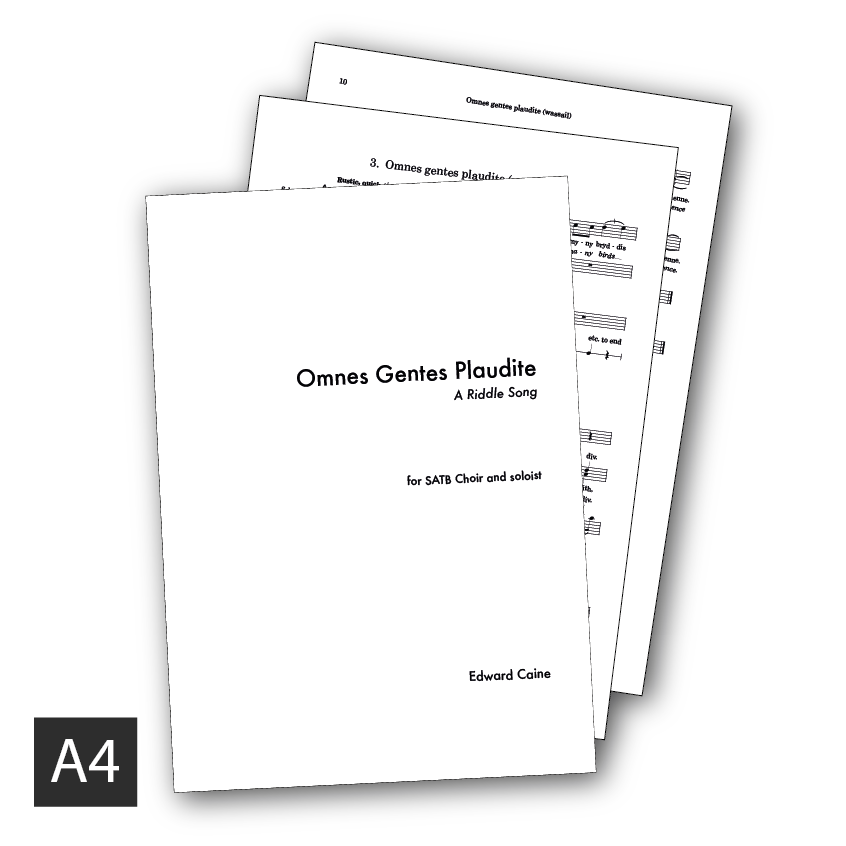
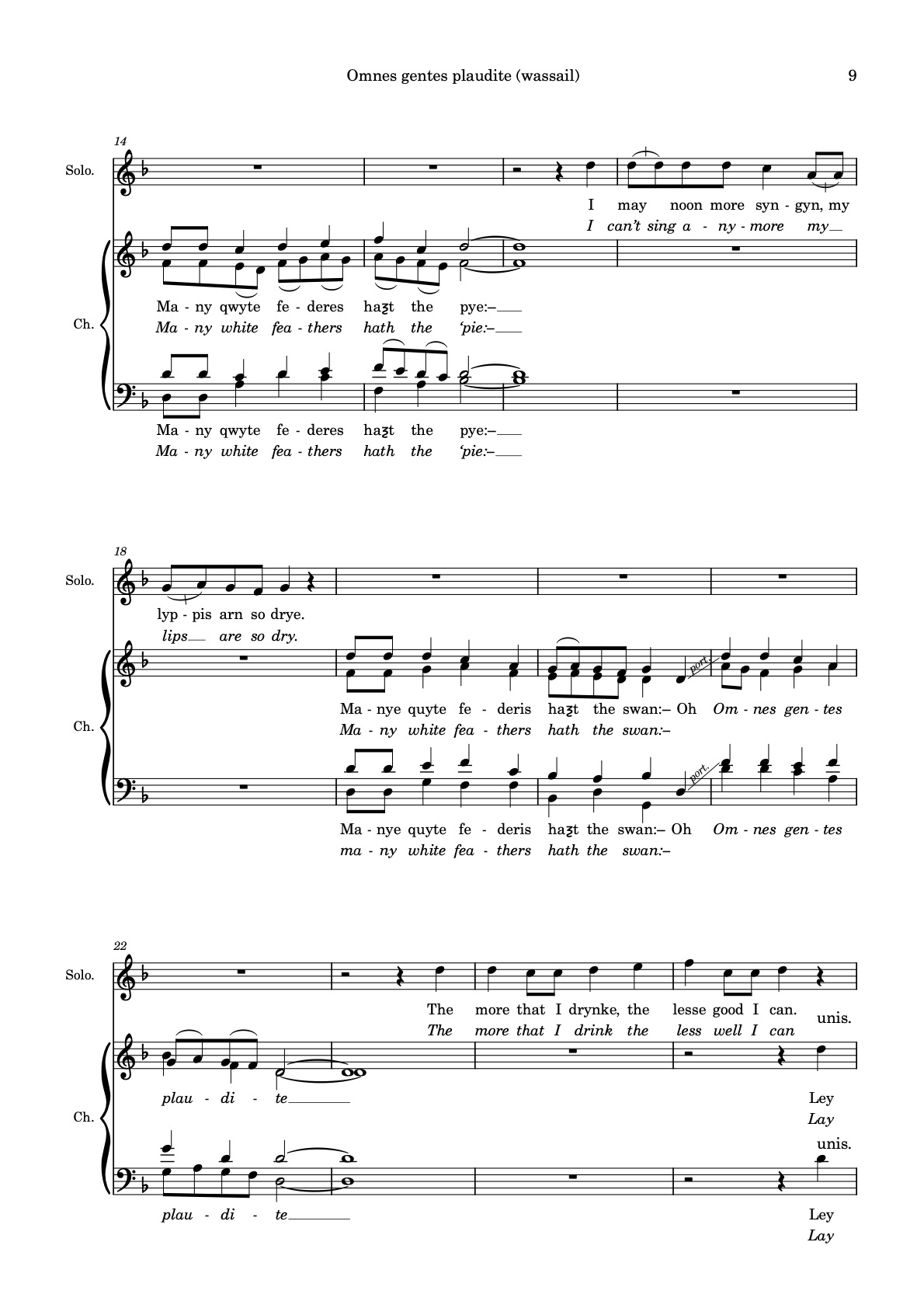
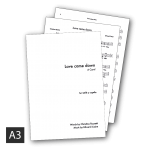
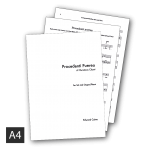
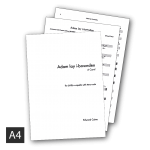

Reviews
There are no reviews yet.